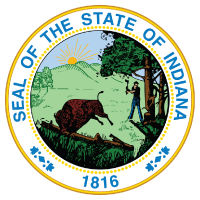Among reliable sources of information about online safety and cybersecurity are federal agencies such as the Federal Trade Commission. Following are some tips from the FTC. For a more complete list, go to the FTC’s website.
HOW TO KEEP YOUR PERSONAL INFORMATION SECURE
- Be Alert to Impersonators, especially through email a.k.a. “phishing”
- Safely Dispose of Personal Information – Computer and Mobile Device
- Encrypt Your Data – Look for “https://”
- Creating Passwords and Keeping Them Safe
- Don’t Overshare on Social Networking Sites
- Keeping Your Devices Secure
- Use Security Software
- Avoid Phishing Emails
- Be Wise About Wi-Fi
- Lock Up Your Laptop
- Read Privacy Policies - Nobody Reads Privacy Policies – Here’s How to Fix That
- Use Multi-factor Authentication
NEW! AVOID SCAMS AFTER DISASTER STRIKES
As hurricanes and other natural disasters occur, The Cybersecurity Infrastructure and Security Agency (CISA) urges individuals to remain on alert for potential malicious cyber activity. Fraudulent emails and social media messages—often containing malicious links or attachments—are common after major natural disasters. Exercise caution in handling emails with hurricane-related subject lines, attachments, or hyperlinks. In addition, be wary of social media pleas, texts, or door-to-door solicitations relating to severe weather events. Before responding, ensure hurricane-related guidance is from trusted sources, such as local officials and disaster response organizations, including Federal Emergency Management Agency (FEMA) and DHS's Ready.gov.
CISA encourages everyone to review the following resources to avoid falling victim to malicious cyber activity:
- Federal Trade Commission’s Staying Alert to Disaster-related Scams and Before Giving to a Charity,
- Consumer Financial Protection Bureau's Frauds and Scams,
- FEMA's Disaster Fraud guidance, and
- CISA’s Phishing Guidance, Stopping the Attack Cycle at Phase One to help organizations reduce likelihood and impact of successful phishing attacks.

